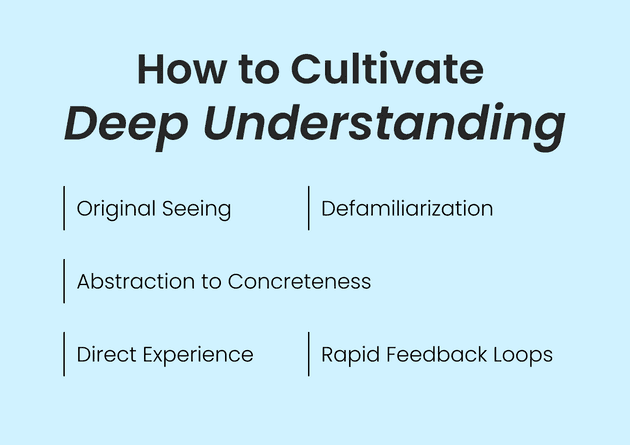How to cultivate deep understanding: Defamiliarization, Original Seeing, Three Examples, Direct Experience, and Rapid Feedback Loops.
Podcast: Nabeel Qureshi on Slop, Care, Meaning, Learning, Palantir, Government, Art, and More
Deep understanding doesn't happen by accident. Even if you have "the will to think", it takes deliberate effort and specific strategies to grasp complex concepts. Nabeel talked about some ways I found helpful:
Defamiliarization and Original Seeing
Defamiliarization is a technique in art that allows individuals to experience common things in an unfamiliar environment to gain new perspectives and see the world differently. This ties into the idea that "strangeness" is an essential characteristic of good art.
Original seeing is about paying close attention to stuff you usually take for granted, like carefully observing a leaf, a mug, or even your phone. When you focus, you'll notice tiny details and complexities you never saw before.
Moving from Abstraction to Concreteness
Whenever something feels vague or abstract, think of three real-life examples.
For instance, if you're thinking about "good leadership," name three people you admire and figure out exactly what they did that impressed you. This makes abstract ideas practical and easier to understand.
Direct Experience and Rapid Feedback Loops
You learn things on a whole different level when you experience them. Reading recipes isn't the same as cooking. Watching travel vlogs is cool, but traveling somewhere new gives you deeper insights.
This is also related to fast feedback loops. Immediate feedback makes learning faster and deeper. Video games are perfect examples because they are essentially a simulation of reality with fast feedback loops.
